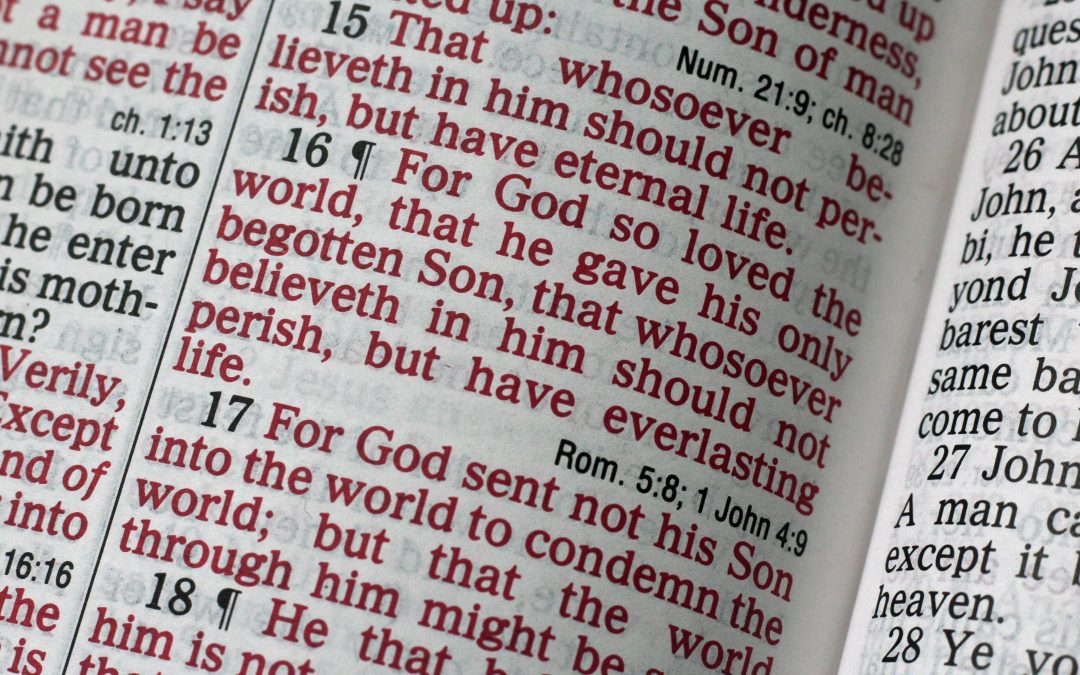For Paul, the word hope pointed to a confident, specific assurance about the future–the assurance that God will raise us from the dead and will create a new heaven and a new earth through Jesus Christ:
For in hope we have been saved, but hope that is seen is not hope; for who hopes for what he already sees? But if we hope for what we do not see, with perseverance we wait eagerly for it. (Romans 8:24-25)
If we are confident of the resurrection hope that we have, we can live our lives in the face of adversity and suffering, knowing that we have a glorious future.
Our Christian hope is steadfast and sure because it is grounded in the person of Jesus Christ, in His death and resurrection on our behalf. It is a future hope–a hope that has not yet fully blossomed and been completed.
Remember this great hope when you suffer and grieve.
Paul acknowledged that suffering is still part of this world, while we wait for the glorious promises we’ve been given to be fulfilled. There are times when we are tempted to give in. “What then shall we say to these things” (Romans 8:31) when we hurt and grieve?
We seldom see people who cheer up when things go wrong. Generally, grief and affliction have a depressing impact upon our feelings, our personality, and our spiritual lives.
What shall we say to these things, to the harsh realities of suffering?
God Loves You
Look to the cross of Jesus to answer questions like these. If He is the kind of God who gave up His Son for us, then you can be sure that He is also the kind of God who will freely give us all things.
The answer of the human psyche is, “I feel depressed, so God must not love me.” The answer of circumstances may be, “Ah, everything’s going wrong in your life. Clearly God does not love you.” The answer empirically written on the face of human history, given as an historical fact, is that the Everlasting God sent His only Son to die for you and me. The Father loves us, even though He is aware of every one of our sins.
God also defines what real love is. Read “The Truth about Love.”
Jesus pleads for us in court.
In Romans 8:33-34 we are presented with a court room scene. Though the characters are not named, it becomes evident, as you digest the passage, that the Father, who is the judge, has declared our innocence. We are the defendants in this courtroom. There is also an accuser–Satan, whose name simply means “the accuser.” Finally, there is an attorney, an intercessor, Jesus Christ, who pleads on our behalf:
Who will bring a charge against God’s elect? (Romans 8:33)
I am confident that all the earth will one day stand trial before God. We have been given a glimpse, ahead of time, of the outcome of that great catastrophic trial at the end of the age. The Father, the Judge of all the earth, has declared innocent those who are in Christ Jesus. The Son Himself, the one who died on Calvary’s tree, was raised from the dead, and is now at the right hand of God, will plead for you and for me. Who would dare to show his face in court to speak against God’s people?
God has the power to redeem you.
In Romans 8:38-39 we are told that there is no power in heaven and on earth strong enough to separate us from the love of God revealed to us through Christ Jesus.
Paul had in mind here the mighty angelic entities who rule in the invisible world. Paul believed that our world is inhabited by invisible powers, Thanatos and Zoe, and others, and that these angelic entities have a great deal of influence over the course of human history.
Paul certainly believed in human freedom, but he also saw that in our present world of evil these invisible powers wreak havoc. They bring about poverty. They bring about famine. They bring about war. They bring about evil, and man’s inhumanity to man. Are any of these invisible powers that inhabit heaven and earth strong enough to break the bond between Christ and those who are in Christ?
Paul answered that question with an emphatic no:
For I am convinced that neither death, nor life, nor angels, nor principalities, nor things present, nor things to come, nor powers, nor height, nor depth, nor any other created thing, will be able to separate us from the love of God, which is in Christ Jesus our Lord. (Romans 8:38-39)
We stand in this present evil age, and we are being put to death all day long (Romans 8:36). But, Paul says, in the midst of these sufferings, in the midst of the afflictions of this present evil age, “we overwhelmingly conquer through Him who loved us.” (Romans 8:37)
Dear friend, there is a marvelous hope for all who are in Christ. It is an umbrella of protection, a promise of everlasting life and peace with a God who loves us.
You can also read “There’s Hope. Here’s Why.”
The preceding was adapted by Rachel Motte from a sermon delivered by Dr. Sloan at Tallowood Baptist Church on February 18, 1990.
